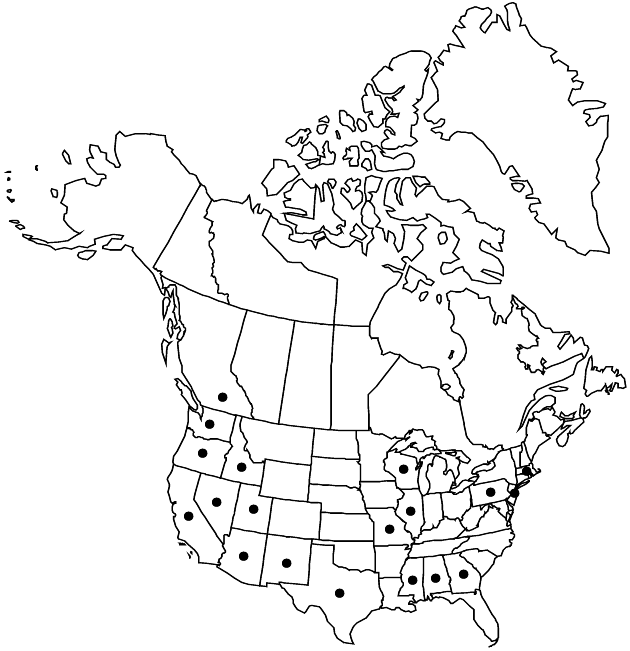Centaurea melitensis
Sp. Pl. 2: 917. 1753.
Annuals, 10–100 cm, herbage loosely gray-tomentose and villous with jointed multicellular hairs, sometimes minutely scabrous, minutely resin-gland-dotted. Stems 1–few, few–many branched distally. Leaves: basal and proximal cauline petiolate or tapering to base, usually absent at anthesis, blades oblong to oblanceolate, 2–15 cm, margins entire to dentate or pinnately lobed; cauline long-decurrent, blades linear to oblong or oblanceolate, 1–5 cm, entire or dentate. Heads disciform, 1–few at branch tips, borne singly or in open leafy corymbiform arrays, sometimes clustered in distal axils, sessile or pedunculate. Involucres ovoid, 10–15 mm, loosely cobwebby-tomentose or becoming glabrous. Principal phyllaries: bodies ± stramineous, ovate, appendages purplish, spiny-fringed at base, each tipped by slender spine 5–10 mm. Inner phyllaries: appendages entire, acute or spine-tipped. Florets many; corollas yellow, those of sterile florets 10–12 mm, slender, inconspicuous, those of fertile florets 10–12 mm. Cypselae dull white or light-brown, ca. 2.5 mm, finely hairy; pappi of many white, unequal, stiff bristles 2.5–3 mm. 2n = 24.
Phenology: Flowering mostly spring–summer (Apr–Jul).
Habitat: Roadsides, fields, pine-oak woodlands, chaparral, agricultural areas
Elevation: 0–1500 m
Distribution

Introduced; Widely, B.C., Ala., Ariz., Calif., Ga., Idaho, Ill., Mass., Miss., Mo., Nev., N.J., N.Mex., Oreg., Pa., Tex., Utah, Wash., Wis., Mexico (Baja California), Europe, Asia, Africa
Discussion
Centaurea melitensis is native to the Mediterranean region. It is listed as a noxious weed in New Mexico.
Selected References
None.
Lower Taxa
"fine" is not a number."fine" is not a number.